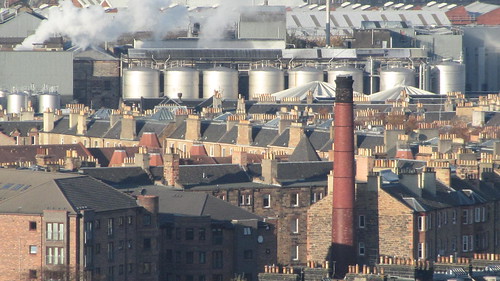Legionella Factsheet, NHS Scotland (ASCII version text only 6/6/12)
This factsheet has been created to provide upto-
date and accurate health information for people
living in the south-west of Edinburgh following
a recent outbreak of Legionnaires’ disease.
What is Legionella and what illnesses can it cause?
Legionella is a bacteria (germ) found in the environment.
It can cause two types of illness:
• Legionnaires’ disease, which is a pneumonia
(lung infection) and can often be a severe illness
• Pontiac fever, which is a milder fl u-like illness.
Where is Legionella found?
Legionella bacteria is widely distributed in the environment
and has previously been found in ponds and rivers.
Problems arise when it contaminates man-made water
systems, such as the water in air conditioning cooling
systems, hot and cold water systems in buildings, spa
pools, cooling towers and other artifi cial water systems.
Is it safe to visit the affected area and should I take
any precautions?
We believe the risk to travellers to be low at present and
there is no evidence to suggest that people should not
travel into south west Edinburgh. The situation is being
monitored and will be kept under constant review.
Are children at risk?
It should be noted that the illness is extremely rare in
children and there are no cases in this current outbreak
under the age of 30 years.
Further Questions?
Please contact the NHS 24 helpline
on 08000 85 85 31 which is open
from 8am – 10pm.
How do you get Legionnaires disease or
Pontiac fever?
The commonest way to get these illnesses is through
inhaling water droplets from a contaminated water
system containing the bacteria. Legionella cannot be
caught by drinking tap water, therefore there is no need
for you to boil your water.
Could I pass this on to family or other contacts?
No. Legionella cannot spread from person to person.
Who is at risk?
For people who are healthy the risk is extremely low.
However the risk is increased for:
• People over the age of 50 years
• Men more than women
• Individuals whose immune system is suppressed
• Patients with chronic lung disease
• Individuals who smoke.
What are the symptoms?
• ‘Flu-like’ illness
• Muscle aches
• Tiredness
• Headaches
• Dry cough
• High fever (39.5°C - 103°F)
• Sometimes diarrhoea and confusion may develop.
How soon do the symptoms occur?
The time between exposure to the bacteria and onset
of symptoms (incubation period) is between 2 and 10
days, typically 5-6 days. In rare cases some people may
develop symptoms as late as two weeks after exposure.
How is it diagnosed?
It is diagnosed either by testing a urine sample, a blood
sample or a sample of saliva/sputum.
What is the treatment?
Treatment is with appropriate antibiotics, which will be
prescribed by the doctor looking after you.
Legionella Factsheet ends.


 posts
posts
